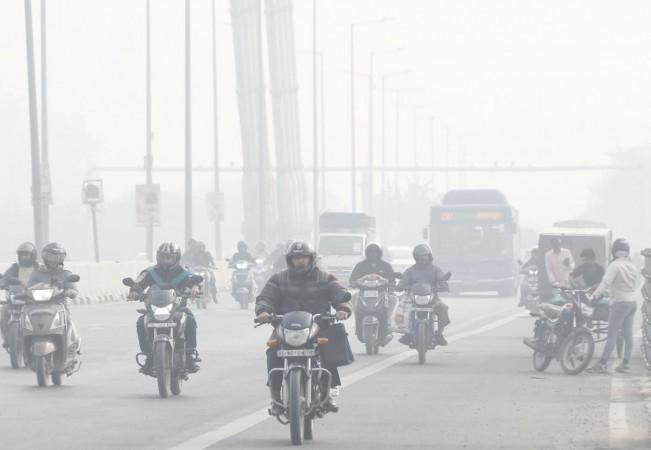
After running into overtime, the Conference of the Parties (COP29) at Baku in Azerbaijan, hosting 198 countries for nearly a fortnight, finally adopted a ‘roadmap’, or a weaker form of an agreement, to say in traditional climate-talks parlance. While setting the stage for kickstarting UN-approved carbon markets, the Conference failed to deliver on the main goal: a New Collective Quantified Goal on climate finance (NCQG). Amidst opposition and protests, a deal was agreed upon early Sunday to “aim to mobilise” $1.
3 trillion a year by 2035, with developed countries agreeing to “lead efforts” to pool in $300 billion a year as a base figure. The NCQG refers to money that will be given to developing countries by developed countries to help the former meet their goals to transition away from the continued use of fossil fuels and to curb greenhouse gas emissions. Developing countries were insisting on mobilising $1.

3 trillion annually. To this end, developed countries have mobilised and transferred $115 billion in 2021-22 – though not all countries agree – but per the Paris Agreement , a new target higher than $100 billion had to be agreed upon by 2025. “This new finance goal is an insurance policy for humanity amid worsening climate impacts hitting every country,” said Simon Stiell, Executive Secretary of UN Climate Change.
“But like any insurance policy, it only works if premiums are paid in full and on time. Promises must be kept, to protect billions of lives. It will keep the clean energy boom growing, helping all countries to share its huge benefits: more jobs, stronger growth, cheaper and cleaner energy for all.
” This document is an optical illusion: Indian delegation However, this conclusion – hammered out in the early hours of Sunday morning – did little to placate several countries who were expecting much more money. A member of the Indian delegation publicly voiced her objections at the closing plenary of the summit. This was acknowledged by the President of the COP, Mukhtar Babayev, only after he had ceremoniously slammed the gavel declaring the end of discussions on the finance aspects.
The objection will however make it to the written COP records. “I regret to say that this document is nothing more than an optical illusion. This, in our opinion, will not address the enormity of the challenge we all face.
Therefore, we oppose the adoption of this document,” Indian delegation representative Chandni Raina told the closing plenary . Nigeria backed India’s stance and termed the finance deal a “joke,” Press Trust of India reported. COP29 also reached an agreement on carbon markets – which several previous COPs had not been able to achieve.
These agreements will help countries deliver their climate plans more quickly and cheaply, and make faster progress in halving global emissions this decade, as required by science, a UN Presidency statement noted. On day one of COP29, the countries agreed on standards for a centralised carbon market under the UN ( Article 6.4 mechanism ).
This is good news for developing countries, who will benefit from fresh flow of finance. And it is particularly good news for least developed countries, who will get the capacity-building support they need to get a foothold in the market, it added. Experts stress need to step up “No country got everything they wanted, and we leave Baku with a mountain of work to do,” said Mr.
Stiell. “The many other issues we need to progress may not be headlines but they are lifelines for billions of people. So this is no time for victory laps, we need to set our sights and redouble our efforts on the road to Belem.
” The finance agreement at COP29 comes as stronger national climate plans (Nationally Determined Contributions or NDCs) become due from all countries next year. These new climate plans must cover all greenhouse gases and all sectors, to keep the 1.5°C warming limit within reach.
COP29 saw two G20 countries, the UK and Brazil, signal clearly that they plan to ramp up climate action in their NDCs 3.0 because they are entirely in the interest of their economies and peoples. “The goal of $300 billion adopted yesterday by CoP 29 in the face of categorical objections of countries including India, Nigeria, Bolivia, Cuba and walk-outs.
..bodes ill for the future of the NCQG and the collective efforts to address climate change.
The multilateral process has not emerged in good light in this event,” said R Rashmi, former environment secretary and Distinguished Fellow, The Energy Resources Institute. “The declared goal is clearly a prisoner of the geopolitics of the present times and is paltry compared to the financing needs of mitigation and adaptation faced by the developing world.” “It kicks the can down the road.
The outcome has good intentions and affirmative verbs which are non committal. There is also no description of what constitutes NCQG nor is there any mention of how and from where the finance will come,” said Dhruba Purkayastha, Director, Council on Energy, Environment and Water. Published - November 24, 2024 08:30 pm IST Copy link Email Facebook Twitter Telegram LinkedIn WhatsApp Reddit climate change / United Nations (climate change) / climate change (politics) / carbon emissions.














